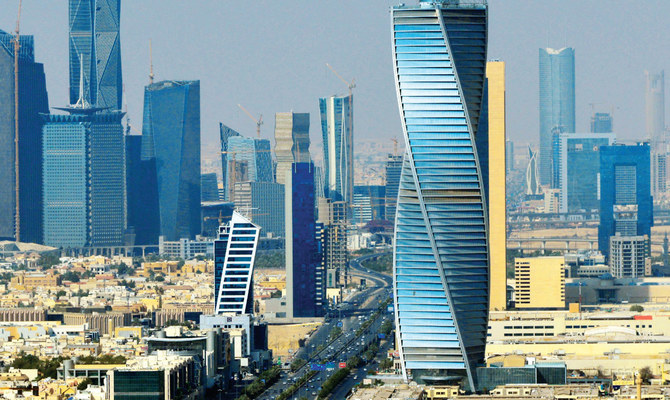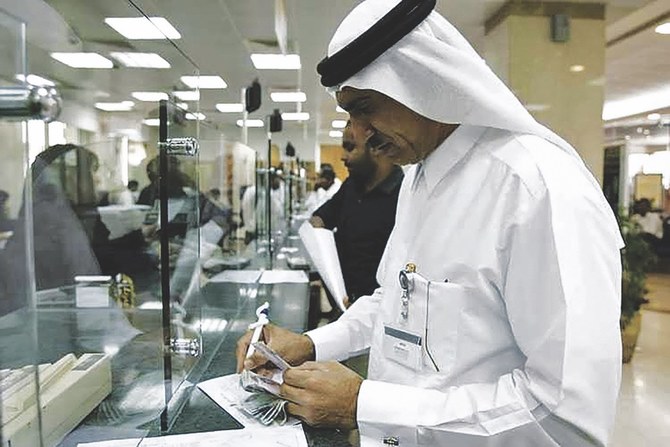CAIRO: Saudi entrepreneurs have shown prominence and courage in bolstering economic growth through innovation and entrepreneurship.
The Middle East region has witnessed unprecedented growth in the establishment of small and medium enterprises along with the shift toward entrepreneurship with Saudi Arabia setting an example for a blooming startup ecosystem.
Entrepreneurship in the Kingdom and the region has changed significantly throughout the years with founders demonstrating exquisite skills in venture funding, accelerating, and scaling.
In an exclusive interview with Arab News, Saud Alsabhan, vice governor of entrepreneurship at Saudi Arabia’s Small and Medium Enterprises General Authority, also known as Monsha’at, said that the Saudi entrepreneurial ecosystem has developed its own logic.
“Over the past six years, we have seen unprecedented growth in our own entrepreneurial ecosystem, both institutionally and organically. With nearly a million SMEs throughout the country, over 90 percent of adults now see entrepreneurship as the right career move,” he added.
The Saudi government has been supporting private institutions targeting startups to further boost investment and engagement in the ecosystem.
Alsabhan added that Saudi entrepreneurs are now getting access to lending mechanisms as well as upskilling programs, accelerators, and incubators.
The boost in knowledge and programs has shown significant effects on venture capital investment as Saudi startups raised $980 million in the first three quarters of 2022, an increase of 108 percent compared to 2021, according to a report by Monsha’at.
“Our Monsha’at Academy, for example, has already upskilled over 20,000 trainees in better SME capacities, while our Mazaya platform, which helps SMEs optimize costs, has helped over 48,000 beneficiaries,” Alsabhan explained.
He added that the Kingdom has also witnessed startups that support SMEs like Nawafth, an online consulting services app; Tomoh 2.0, a company that scales SMEs; and Fikra, a platform that drives enterprises to develop better public services.
“Add to this the robust and ambitious funding mechanisms being provided by other institutional actors, and it’s no exaggeration to say there’s never been a better time to be a small and enterprising business in Saudi Arabia,” Alsabhan stated.
Founder of Kuwait’s largest online marketplace 4Sale, Tarek Sakr, told Arab News exclusively that Saudi Arabia has spearheaded the growth of entrepreneurialism in the region but expects a downfall in venture funding in 2023.
FASTFACTS
• The boost in knowledge and programs has shown significant effects on venture capital investment as Saudi startups raised $980 million in the first three quarters of 2022, an increase of 108 percent compared to 2021, according to a report by Monsha’at.
• The Kingdom has witnessed startups that support SMEs like Nawafth, an online consulting services app; Tomoh 2.0, a company that scales SMEs; and Fikra, a platform that drives enterprises to develop better public services.
• Founder of Kuwait’s largest online marketplace 4Sale, Tarek Sakr, said Saudi Arabia has spearheaded the growth of entrepreneurialism in the region.
“Countries like Saudi Arabia are spearheading the growth of entrepreneurialism in the region, and these are the markets where I see entrepreneurial knowledge in practice — all the way from idea inception to successful exit.”
He added: “Saudi Arabia stands out due to its government and sovereign wealth fund which have developed impressive support schemes for entrepreneurs and systematically encourage new business projects, trying to ease the journey at every turn.”
Sakr explained that entrepreneurs in 2022 showed their resilience following global economic crises like inflation and the Russian-Ukraine war which in turn made startups focus more on generating revenues instead of public relations exercises.
“In recent years, founders in the Middle East have experienced very few hurdles when fundraising, following a seemingly clear path set out by investors to secure the funding they desire. With this ‘cheap money’ came an increasing focus on presenting your startup in the right light — and marketing became as important, or even more important than building the business,” Sakr said, describing the venture-funding space prior to 2022.
As venture funding is vastly driven by acquisitions and mergers, Sakr explained that the startup ecosystem in the region was perceived as an extremely attractive investment opportunity but “the tide has changed.”
“My prediction is that funding in 2023 will not continue to increase at rates seen in recent years. The tangible reason for that is a lack of exits in sufficient numbers to keep the excitement going,” he explained.
He added that future investments in startups will be “smart money” with more conditions and due diligence attached.
Sakr further elaborated that in order to further boost the ecosystem and avoid a downfall, startups must have access to traditional loans instead of relying on investors for funding.
“Today, for most early technology startups, venture capital funding is much more feasible than receiving a loan from a bank, due to strict due diligence requirements,” he added.
Alsabhan believes that internationalizing the entrepreneurial ecosystem is one way of enhancing the startup space.
He explained that most of the products and innovations are built outside the Kingdom although the Saudi population is highly educated and youthful.
“At Monsha’at, and throughout the government, we are keen to redirect some of that intellectual and entrepreneurial trend by inviting more investors, entrepreneurs, innovators, and creative individuals to invest their time, resources and ideas into Saudi Arabia,” Alsabhan added.
Moreover, global venture capitalists are also excited about the region’s startup space, specifically Saudi Arabia, but encourage entrepreneurs to be more careful when gathering funding and starting a business as the ecosystem starts to magnify.
Igor Ryabenkiy, CEO and managing partner of AltaIR Capital, an early-stage global venture capital firm, gave a few tips for entrepreneurs to dodge a bubble burst.
Ryabenkiy advises ambitious startups to avoid being hung up on the local markets and to look for global expansion from the very beginning.
“If startup founders decide to build a global company, it is important to convey their idea to users, investors, and the market and develop a strong go-to-market strategy. We also suggest hiring international professionals with technological and business expertize,” he told Arab News exclusively.
Ryabenkiy further explained that when it comes to fundraising, startups should be selective about the investors they bring to the table and look for industry knowledge as opposed to just monetary value.


















